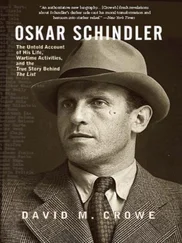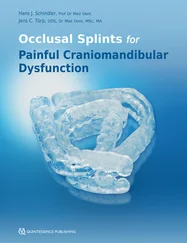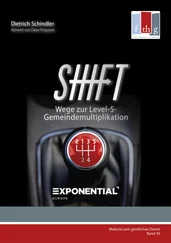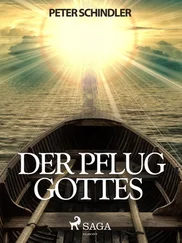The hold of Brinnlitz was a negative one, and within a week the prisoners began to move out. Some whose families had been consumed went directly to the West, never wishing to see Poland again. The Bejski boys, using their cloth and vodka to pay their way, traveled to Italy and boarded a Zionist ship to Palestine. The Dresners walked across Moravia and Bohemia and into Germany, where Janek was among the first ten students to enroll in the Bavarian University of Erlangen when it opened later in the year. Manci Rosner returned to Podgórze, where Henry had agreed to meet her. Henry Rosner himself, liberated from Dachau with Olek, was in a pissoir in Munich one day and saw another client of the place wearing prison-camp stripes. He asked the man where he had been imprisoned. “Brinnlitz,” said the man.
Everyone except an old lady, the man told him (inaccurately, as it turned out), had survived Brinnlitz. Manci herself would hear of Henry’s survival through a cousin who came to the room in Podgórze where Manci was waiting and waved the Polish paper in which were listed the names of Poles liberated from Dachau. “Manci,” said the cousin, “give me a kiss. Henry’s alive, and so is Olek.”
Regina Horowitz had a similar rendezvous. It took her three weeks to travel from Brinnlitz to Cracow with her daughter Niusia. She rented a room—the handout from the Navy store made that possible—and waited for Dolek. When he arrived, they sought to make inquiries of Richard, but there was no news. One day that summer Regina saw the film of Auschwitz which the Russians had made and were showing free of charge to the Polish population. She saw the famous frames involving the camp children, who looked out from behind the wire or were escorted by nuns past the electrified fence of Auschwitz I. Being so small and so engaging, Richard figured in most of the frames. Regina got up screaming and left the theater. The manager and a number of passing citizens tried to soothe her in the street. “It’s my son, it’s my son!” she kept screaming. Now that she knew he was alive, she was able to discover that Richard had been released by the Russians into the hands of one of the Jewish rescue organizations. Thinking both his parents dead, the rescue body had had him adopted by some old acquaintances of the Horowitzes’, people named Liebling. Regina was given the address, and when she arrived at the Lieblings’ apartment could hear Richard inside, banging on a saucepan and calling, “Today there’ll be soup for everyone!” When she knocked on the door, he called to Mrs. Liebling to answer it.
So he was returned to her. But after what he had seen of the scaffolds of Płaszów and Auschwitz, she could never take him to a children’s playground without his growing hysterical at the sight of the swing frames.
At Linz, Oskar’s group reported to the American authorities, were relieved of their unreliable ambulance, and were taken by truck north to Nuremberg, to a large holding center for wandering concentration-camp prisoners. They were discovering that, as they had suspected, liberation wasn’t a straightforward business.
Richard Rechen had an aunt in Constanz, by the lake on the Swiss border. When the Americans asked the group if there was anywhere they could go, they nominated this aunt. The intent of the eight young prisoners from Brinnlitz was to deliver the Schindlers, if possible, across the Swiss border, in case vengeance against Germany erupted suddenly and, even in the American zone, the Schindlers were unjustly punished. Additionally, all eight of them were potential emigrants and believed that these matters would be easier to arrange from Switzerland.
Reubinski remembers that their relationship with the American commandant in Nuremberg was cordial, but the man would not spare them any transport to take them south to Constanz. They made the journey through the Black Forest as best they could, some of it on foot, some of it by train. Near Ravensburg they went to the local prison camp and spoke to the U.S. commandant. Here again they stayed as guests for some days, resting and living high on Army rations. In return, they sat up late with the commandant, who was of Jewish descent, and told him their stories of Amon and Płaszów, of Gróss-Rosen, Auschwitz, Brinnlitz. They hoped he would give them transport to Constanz, possibly a truck. He could not spare a truck, but gave them a bus instead, together with some provisions for the journey. Though Oskar still carried diamonds worth over 1,000 RM. as well as some currency, the bus does not appear to have been bought but was instead given freely. After his dealings with the German bureaucrats, it must have been difficult for Oskar to adjust to that sort of transaction. West of Constanz, on the Swiss border and in the French Occupied zone, they parked the bus in the village of Kreuzlingen. Rechen went to the town hardware store and bought a pair of wire cutters. It seems that the party were still wearing their prison uniforms when the wire cutters were purchased. Perhaps the man behind the counter was influenced by one of two considerations: (a) this was a prisoner, and if thwarted might call his French protectors; (b) this was in fact a German officer escaping in disguise and perhaps should be helped.
The border fence ran through the middle of Kreuzlingen and was guarded on the German side by French sentries of the Süret’e Militaire. The group approached this barrier on the edge of the village and, snipping the wires, waited for the sentry to near the end of his beat before slipping through to Switzerland. Unhappily, a woman from the village observed them from a bend of the road and rushed to the border to alert the French and Swiss. In a quiet Swiss village square, a mirror image of the one on the German side, the Swiss police surrounded the party, but Richard and Anka Rechen broke away and had to be chased and apprehended by a patrol car. The party was, within half an hour, passed back to the French, who at once searched their possessions, discovering jewels and currency; drove them to the former German prison; and locked them in separate cells.
It was clear to Reubinski that they were under suspicion of having been concentration-camp guards. In that sense the weight they had put on as guests of the Americans boomeranged, for they did not look as deprived as when they’d first left Brinnlitz. They were interrogated separately about their journey, about the valuables they were carrying. Each of them could tell a plausible story, but did not know if the others were telling the same one. They seem to have been afraid, in a way that had not applied with the Americans, that if the French discovered Oskar’s identity and his function in Brinnlitz, they would arraign him as a matter of course.
Prevaricating for Oskar’s sake and Emilie’s, they remained there a week. The Schindlers themselves now knew enough about Judaism to pass the obvious cultural tests. But Oskar’s manner and physical condition didn’t make his posture of recent-prisoner-of-the-Ss very credible. Unhappily, his Hebrew letter was over in Linz, in the files of the Americans. Edek Reubinski, as the leader of the eight, was questioned most regularly, and on the seventh day of his imprisonment was brought into the interrogation room to find a second person there, a man in civilian clothes, a speaker of Polish, brought in to test Reubinski’s claim that he came from Cracow. For some reason—because the Pole played a compassionate role in the questioning that followed, or because of the familiarity of the language—Reubinski broke down, began to weep, and told the full story in fluent Polish. The rest were called one by one, were shown Reubinski, were told he had confessed, and then were ordered to recite their version of the truth in Polish. When at the end of the morning the versions matched, the whole group, the Schindlers included, were gathered in the interrogation room and embraced by both interrogators. The Frenchman, says Reubinski, was weeping. Everyone was delighted at that phenomenon—a weeping interrogator. When he managed to compose himself, he called for lunch to be brought in for himself, his colleague, the Schindlers, the eight. That afternoon he had them transferred to a lakeside hotel in Constanz, where they stayed for some days at the expense of the French military government.
Читать дальше












